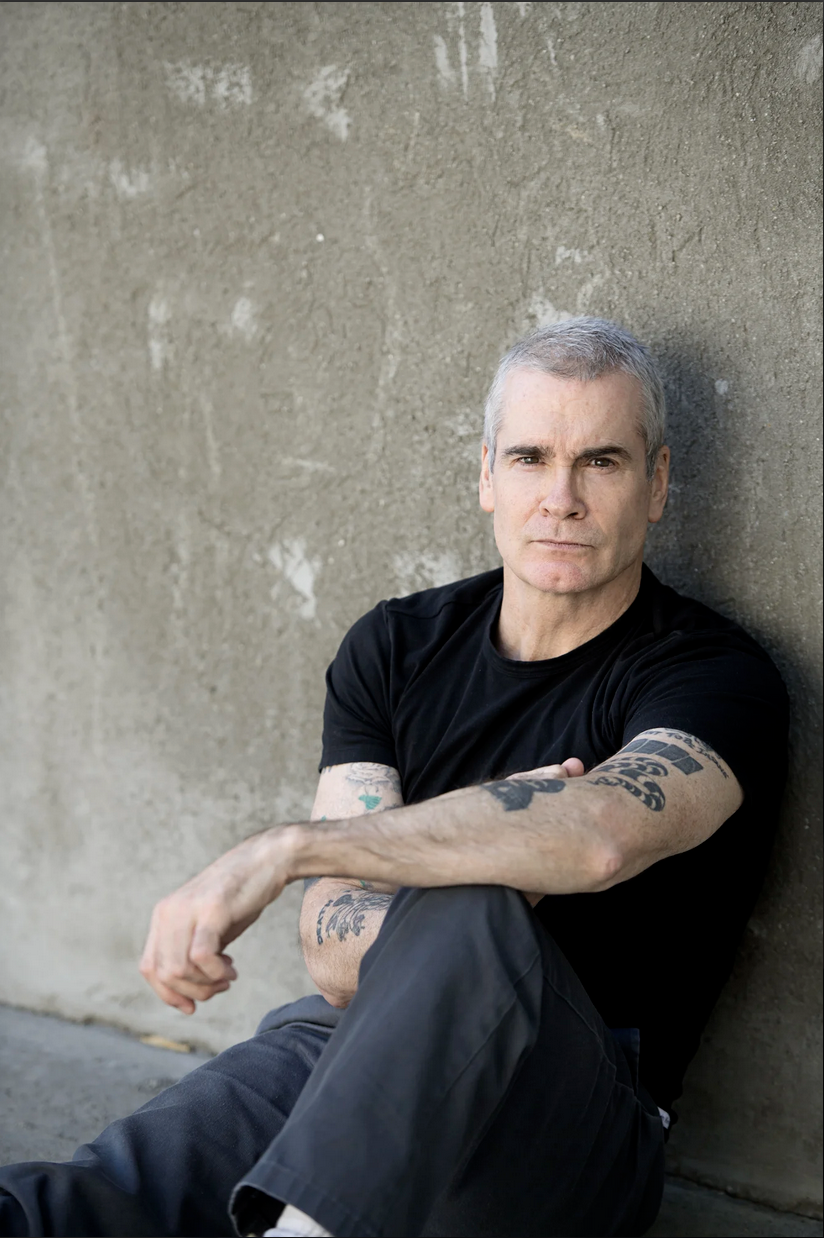Opeth's Martin Mendez isn’t one for showmanship. In fact, Martin was probably one of the unlikeliest candidates for a measured rise into Swedish metal stardom. Born and raised in Uruguay, he drank in all the music that his Latin heritage had to offer, pouring it into his elegant, textured bass playing. Making his way to Sweden by way of Swedish-born Uruguyan drummer Martin Lopez, he joined Opeth in 1999, almost half way into the band's now twenty year career.
Killing the Facebook - A Welcome Disconnection
On Thursday night, I made a pre-meditated, well-planned and spontaneous decision to deactivate my Facebook. Ignoring it wasn't enough. I wanted it dead.
When one decides to shut down Facebook, the cybernetic entity controlling its blue and white projection tries to guilt you into staying. It feebly attempts to convince you its privacy violations are ingenuous, the premise behind it is half-way useful and even resorts to emotional blackmail, insistent that certain real life friends will miss your cyberpresence. Despite the electronic pleading and bureaucracy it entangles you in (are you really, truly sure? Enter your Tax File Number and mother's father's aunt's maiden name to continue.) I pulled the plug.
Let me tell you, what a relief.
The last year and a half, I've experienced overwhelming, world-view shifting changes. Some are physical - I feel stronger and fitter. Others are mental - I know more that I did last year. A lot of them are intangible, yet bound up with my very being. Facebook does a disservice to our being. It labels it, it regulates it and alters our perception of it. It's not a window into our being. It's a map of it that's barely accurate at the best of times.
Prior to the advent of social media and my own return from the brink of oblivion, I almost wished I could use some kind of benign platform to convince myself that my friends were routinely ignoring me or were acting like sinister villains behind my back. My mind with paranoia's snakes coiled tight around it was convinced - convinced! - that these smiles masked a cruel intent.
Maybe they did. More rationally and overall, likely, they most probably didn't. Sure, by the time I'd reached the end of my tether with this colloquial monstrosity, I'd noticed a pattern had emerged when I'd made a post. Only about 10 or 15 "friends" seemed even remotely interested in what I'd had to say. Sure, I'd made some new contacts along the way but I'd also made some "indifferents." I was "hidden" from view by everyone else - or so it seemed.
But then I figured that my fatigue with Facebook stemmed from viewing an overabundance of useless and intellectually void information about people I barely knew. Yet, the otherness lay in myself: I made little to no effort to get to know the people - the real people behind the "book" obscuring their "faces" - and at that instant, there was clarity as I emerged from beyond the murk: I was out of integrity with my use of Facebook. It was all bullshit, man.
The last year I've made many lasting friendships. Brotherhoods indissoluble, loves everlasting. But they weren't made over Facebook. They were forged as sunlight beat down on our faces, as tears streaked down our cheeks, as frost billowed through the cadence of our breaths. Friends are made and re-made over cheap meals and cheaper laughs in second-rate cafes. Facebook, the great concealer of real, open and visceral humanity didn't let seeds of camaraderie take root and flourish; it kept them in stasis until someone decided to let it expire.
So I got rid of it. I was bullshitting myself if I chose to keep my interactive dossier of half-truths up and running. I'm not even remotely concerned that it's a great "tool" for promoting my journalism work or services as a consultant. I get enough rejection e-mails from editors and managers in my good old fashioned email inbox, thank you very much.
My once enthusiastic adoration for Twitter has all but evaporated too. The only "social medium" (although that's a contestable term) I'm rather enjoying is Tumblr - it's like running one's own pop-culture museum. There's a certain joy in stealing from others' small collections and discoveries to curate in one's own permanent exhibition. It's superficial, that's a given. But it's artifice does not purport to foster "friendships" in the physical sense. Online community, yes. "A place for your friends," not so much.
Will I miss it? I'm not suffering from any measure of withdrawal. But like the aims of my (numerous) social media moratoriums, the payoff is in rising to challenge of relying on it no longer. If I want to know what's going on with my social circles, I'll have to talk to someone and engage in a real conversation to find out. If I'm forgotten by fair-weather friends, then so what? I know who my brothers and sisters are on this magnificent journey. I'll love and support them as long as I'm able. In kind, they will support me, too.
So I give praise to Facebook precisely as I bury it (with the cumulative personal information I've fed it over the years clutched firmly in its cold, dead hands.) You've opened my eyes to see where my real friends truly are.
Where's Our Google, Too?
I felt compelled to add my opinion to the billion-strong chorus of ill-baked and half-formed critiques and hagiographies of Google+ on the basis none of them seemed to catch on to some fundamental facets of media ecology. Media ecology put simply is the study of media as an environment and was pioneered by Marshall McLuhan, Neil Postman, Jacques Ellul and many others. In honor of ABC Radio National's week-long celebration of the life and work of Marshall McLuhan, I present my simple media ecological analysis of Google+ and why I don't feel it'll take off to Facebook proportions.
1. Because it's Google+, not Google 2: Electric Googleoo
The mantra of media ecology, especially that of the late great Neil Postman is that new media is not additive but transformative. You don't get a culture plus television, you get a completely new way of disseminating and interpreting information. 20 years ago, not everyone needed a computer. But in 2011 you go into someone's home, chances are you'll see a computer in residence with a connection to the internet. Computers hooked up to the internet are a material change to our culture that results in a behavioral change. Go to any restaurant and see the new table adornments: black rectangles that go "ping" when your date is talking about new boots or football or whatever.
Google+ only works on the premise that it will make a material or behavioral change to your life somehow. If you intend to own a Chromebook, then yes - Google+ makes total sense. Using Chromium OS, Google+ fits right in to the entire purpose of the operating system and the computer; making it a purely web-based machine and experience.
If you don't own one nor do you intend to own one, it has to offer something drastically new and something substantially more cooler than Facebook to kick the Facebook habit.
2. The people who give a shit about it give a shit already
I've noticed no one is pestering me for invites any more - partly because they don't like me and mostly because those who already want it, have it and those who don't give a shit...well, don't give a shit. Google+ has almost already hit a critical mass of people who give a shit about it and now that anyone can send an invite the give a shit factor has taken a nosedive. Those who do give a shit evangelize about it as the Facebook killer but inevitably hit the obvious roadblock:
"So what's it like?" asks the incredulous bystander. "It's like bringing all your friends together, but you can follow other people you think are cool and you put them into circles and it's AWESOME," replies the Google+ zealot.
"So it's like Facebook."
"Yes, but better."
But is it better? Faster? Harder? Stronger? In what way? Pick any one of the preceding and it's especially difficult to evaluate if that's even true or not. But there is one way, which I'll explain later.
3. Pitching something to everyone means you need to make a habit out of it
Facebook was revered by university students because it couched them in a sort of electronic elitism - don't go to uni? Well fuck you, you can't use Facebook. Before long it was available to high school students, technical colleges and eventually everyone. Then it opened itself up to the internet and segued into the background of the web experience, not as the go-to site of the minute. It became a habit.
G+ seems to work on the premise that it's ridiculously simple enough for the web-only Chromium set but also powerful and malleable enough for the media "gurus" and code monkeys. Where does it leave the people in the middle? Killing e-cows with their mafia goons on Facebook. It's difficult to change a habitual behavior and the reason has to be compelling for those to change. Facebook wasn't built on a new premise, but its advantage over MySpace? It successfully broke down an ingrained habit (for some) and facilitated other people to form new ones.
Your friend posts a photo of what they're eating, every day? It's the online equivalent of twirling one's hair or tapping one's foot, mostly unconsciously. (How can you spend 2 hours on that fucking thing without realizing, I mean, seriously.) Perhaps we all need an e-Gestalt therapist to ask us "Vat is the sik-niff-ee-kunss of zat what you are doing zere?"
Can Google+ achieve the same thing? I doubt it - at this stage. To get to Facebook or even Twitter status, it has to be come a lasting and integral part of our everyday experience. Right now it's like "Oh yeah, shit, I have Google+. I should post this blog post about Google+ on it, right now!"
Even those who signed up for Facebook and didn't make a habit out of it would probably log in and find their notifications area awash with red. If there's no sustained buzz, I suppose we can wave it away.

